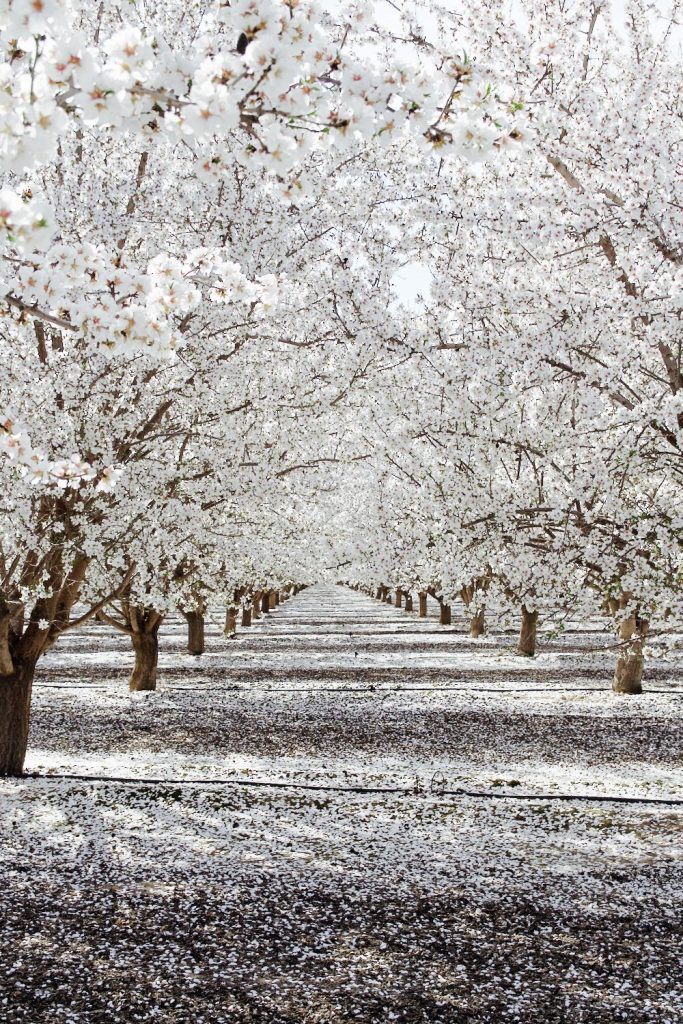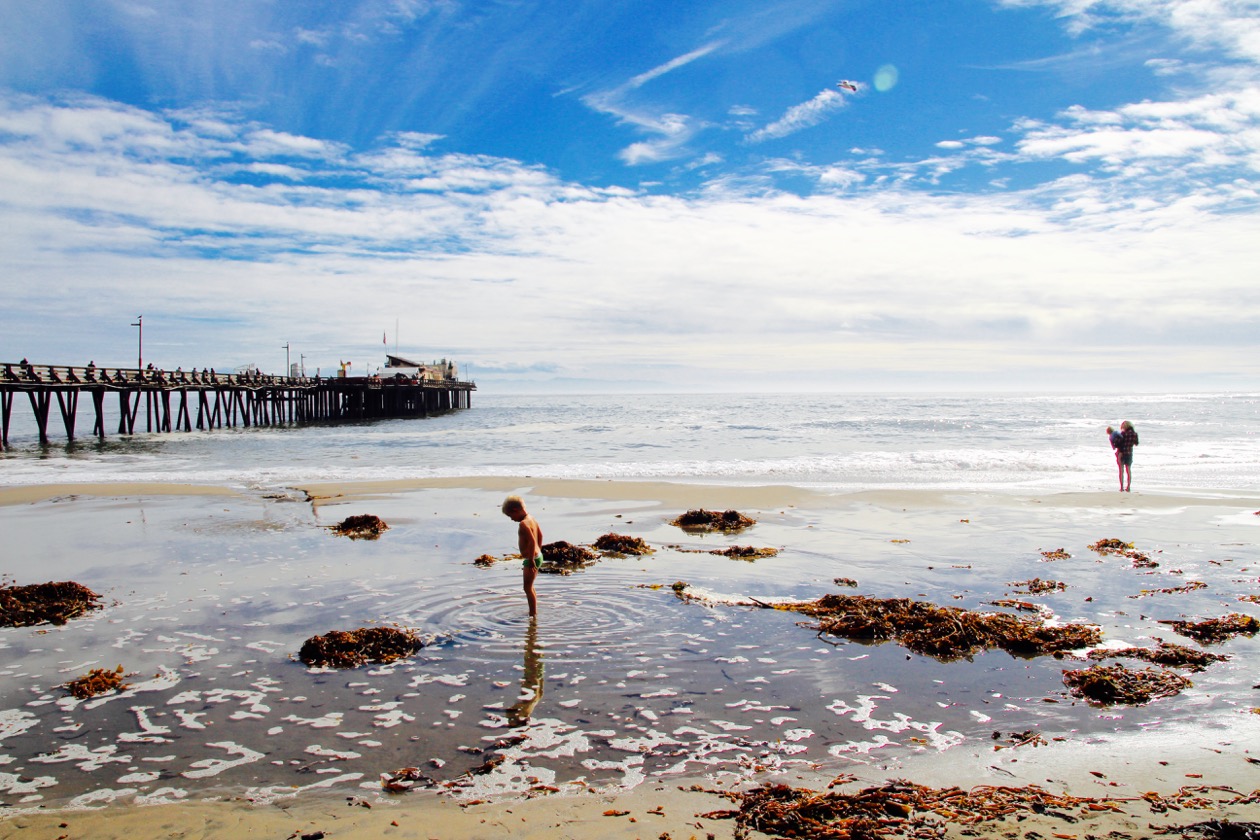
I am as sensitive to hearing “you should really be living THIS way!” lectures as the next person. Perhaps more so, because I live in California, where I have daily (daily!) “conversations” (lectures) with an astonishing number of people who feel the need to tell me how I am eating/drinking/exercising/sleeping/parenting wrong. Which is why I’m loathe to toe that line on this site; I am not in the business of telling anyone else how to live their life.
But I’m going to make an exception today, because when it comes to the environment it’s way past time to sound those alarm bells. The reason I feel comfortable making the below recommendations is that I am a creature of enormous habit, and have historically been in the “What difference can little old me make?” camp – but from where I stand now, that attitude isn’t just lazy, it’s unacceptable. I’m also not someone who’s very good at overhauling decades-old habits, but what I’ve discovered is that you don’t have to do everything right: What matters is that you start doing something. Little things. Anything.
That’s the way to start.
So: Here are five things I’ve been doing to reduce my carbon footprint. If I can do these things, you can, too – promise.
![]() Make (Small) Changes To Your Diet. After fossil fuels, the meat and dairy industries are among the most important contributors to climate change. They’re real bad, guys. And I’m with you: Going straight from being a full-time meat-and-dairy person to eliminating these two major sources of environmental toxicity from your diet can feel impossible. Which is why – for me – starting slow has been the way to go: If I say “no more meat, ever!” that’s setting myself up for failure, but I can certainly commit to making at least two meat-free dinners each week.
Make (Small) Changes To Your Diet. After fossil fuels, the meat and dairy industries are among the most important contributors to climate change. They’re real bad, guys. And I’m with you: Going straight from being a full-time meat-and-dairy person to eliminating these two major sources of environmental toxicity from your diet can feel impossible. Which is why – for me – starting slow has been the way to go: If I say “no more meat, ever!” that’s setting myself up for failure, but I can certainly commit to making at least two meat-free dinners each week.
By reducing your consumption of animal protein by half, you can cut your diet’s carbon footprint by more than 40%.
I’ve also started trying to be more conscious when I grocery shop: Yesterday, for example, I bought vegannaise instead of mayonnaise, chose an almond milk/coconut milk creamer instead of my beloved CoffeeMate, and decided on Beyond Beef for tonight’s bolognese instead of the regular stuff. Tiny changes, sure, but the key, for me, is that they were all doable. And once these small adjustments become habit, I can move forward and make more.
![]() Just Say No to Fast Fashion. I’m not trying to make you feel guilty, I swear – I love a Zara fix as much as anyone – but the results of last year’s experiment (in which I pledged to buy no new clothing whatsoever – with the exception of thrifted pieces – for the remainder of 2019) blew me away. All I had to do whenever I found myself tempted in, say, Target (which is VERY tempting) was say, “Do I need this, or do I just want this?” And virtually every time, the answer was, “I do not need this thing.”
Just Say No to Fast Fashion. I’m not trying to make you feel guilty, I swear – I love a Zara fix as much as anyone – but the results of last year’s experiment (in which I pledged to buy no new clothing whatsoever – with the exception of thrifted pieces – for the remainder of 2019) blew me away. All I had to do whenever I found myself tempted in, say, Target (which is VERY tempting) was say, “Do I need this, or do I just want this?” And virtually every time, the answer was, “I do not need this thing.”
In 2020 I’ve relaxed my ban on clothes shopping because I’m an imperfect person, but I shop much more consciously now, with a heavier emphasis on thrifting and consignment – and much, much less overall. Side-benefit: Cutting down on clothes shopping resulted in an immediate – and large – drop in my monthly expenses. Trust: You don’t realize how much you’re spending until you stop.
![]() Make Skype Work For You (And the Planet). Schedule videoconferences rather than driving (or flying) to in-person meetings. Bonus: You can discuss Q2 projections in your pajama pants! NOBODY WILL KNOW. (Related: Read about how “flight shame” is changing business travel.)
Make Skype Work For You (And the Planet). Schedule videoconferences rather than driving (or flying) to in-person meetings. Bonus: You can discuss Q2 projections in your pajama pants! NOBODY WILL KNOW. (Related: Read about how “flight shame” is changing business travel.)
![]() Choose Your Candidate Wisely. Make climate change your number-one priority when vetting potential elected officials. I agree: There are ten thousand issues that merit our close attention at the moment. But none of them will matter if we destroy our planet in the process of pursuing them. Here’s how to find out where the 2020 Democratic candidates stand on climate change (short story: Bernie wins). That said, whoever the Democratic nominee is will obviously be better for our planet than Trump, so you better believe I’m going to be alllll about whoever ends up running against him. (Sidenote: If you don’t want to hear my political opinions in the run-up to the 2020 election, best stop following me now.)
Choose Your Candidate Wisely. Make climate change your number-one priority when vetting potential elected officials. I agree: There are ten thousand issues that merit our close attention at the moment. But none of them will matter if we destroy our planet in the process of pursuing them. Here’s how to find out where the 2020 Democratic candidates stand on climate change (short story: Bernie wins). That said, whoever the Democratic nominee is will obviously be better for our planet than Trump, so you better believe I’m going to be alllll about whoever ends up running against him. (Sidenote: If you don’t want to hear my political opinions in the run-up to the 2020 election, best stop following me now.)
![]() Start Gardening. This spring, my kids and I are putting together a vegetable garden on our patio because it’s fun, and educational – but also because I’ve been trying to teach them the positive environmental impact of growing your own food. Remember fourth-grade science class? All those plants help pull CO2 out of the air – and eating food that you grew yourself means you don’t contribute to CO2 produced by factories, shipping companies, refrigeration, and so forth.
Start Gardening. This spring, my kids and I are putting together a vegetable garden on our patio because it’s fun, and educational – but also because I’ve been trying to teach them the positive environmental impact of growing your own food. Remember fourth-grade science class? All those plants help pull CO2 out of the air – and eating food that you grew yourself means you don’t contribute to CO2 produced by factories, shipping companies, refrigeration, and so forth.
Finally, remember that the effects of your choices have consequences more far-ranging than you might imagine: Social scientists have found that when one person makes sustainable choices, they directly impact the choices made by those around them. And if you need a reminder of what we’re working for, read this vision of the future – what 2050 will look like if we start doing everything right, right now. Let’s make it happen, and have the change start at home.






